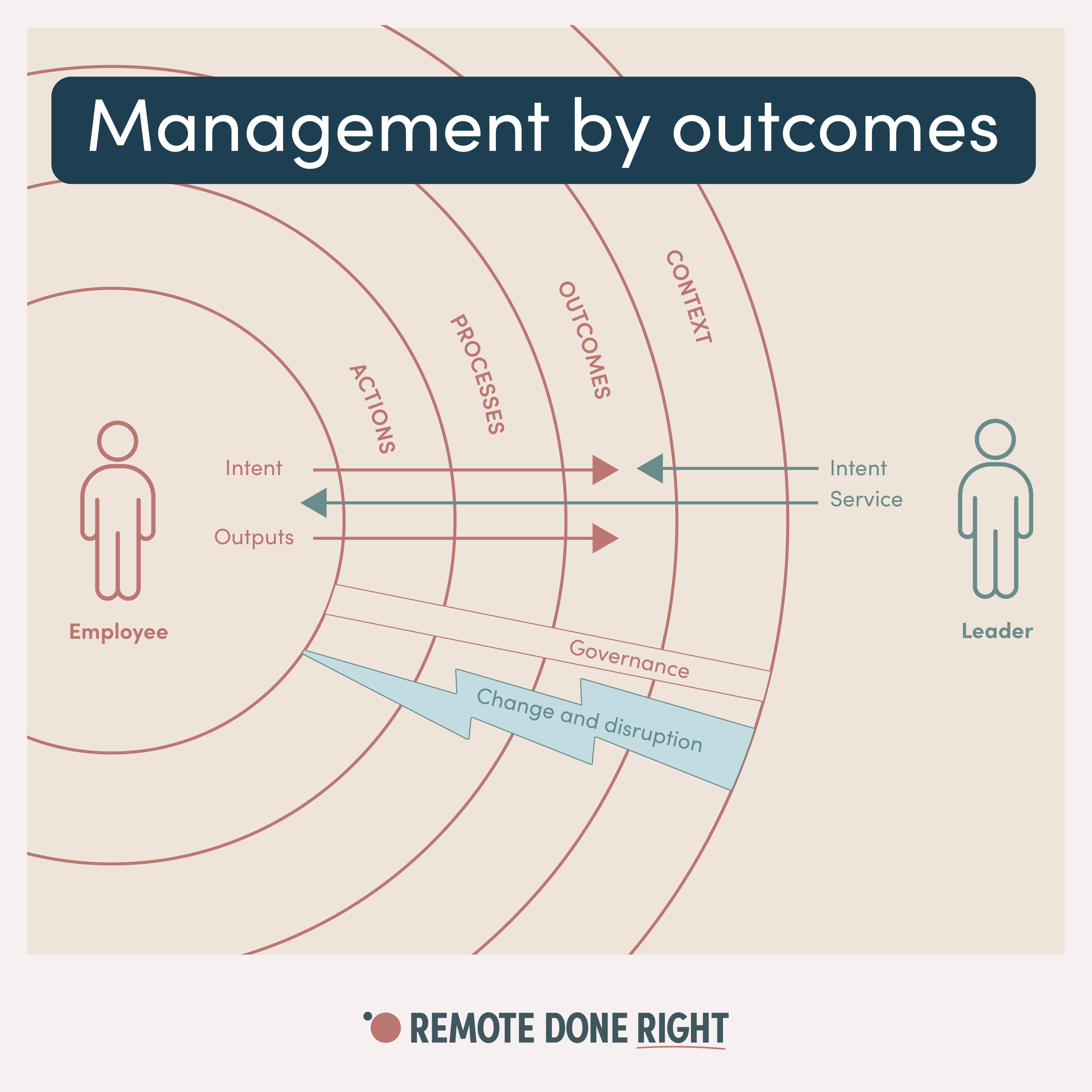Managing outcomes rather than actions
The shift to remote work requires a rethink of management style. Traditionally, managers might have focused on the specific process employees follow to complete tasks. However, this can lead to micromanagement and distrust, particularly in remote settings where direct oversight is difficult. Instead, by clearly communicating desired outcomes to their teams, leaders can empower team members to use their expertise to determine the best ways to achieve those outcomes. This approach fosters trust, engagement, and ultimately, better results.
Stop wondering what your team is doing and start building a remote leadership system that works. Download our free checklist to get started.
Why it matters
Focusing on outcomes increases team trust, engagement, and empowerment.
Remote work introduces a communication and social distance which can amplify issues.
The team can only contribute effectively to an outcome they understand. It’s the leader’s role to communicate and facilitate the desired outcome.
It’s very likely that the team know more about how to reach the outcome than the leader.
Take action
Frame the leadership conversation both to and from staff in terms of intent for outcomes.
Focus on having conversations that enhance psychological safety.
Trust team members to act within their expertise and the agreed processes.
Adopt a service leadership approach. The leader’s job is to help the team deliver outcomes.
Recognise the impact that distance has on communication and take intentional steps to communicate effectively.
Institute just enough governance across the layers of the conversation to empower team-members to get on with the job, while enshrining the team way of working.
Discuss appropriate governance with the team, aim for a negotiation (“How do we demonstrate how things are progressing”) rather than governance as external policing.
“Not everything that matters can be measured. Not everything that we can measure matters.” Buerkli (2019)
Focusing on outcomes does not mean you’ll never have a conversation about processes and actions ever again. As capability maturity increases, the focus of leadership conversations trend outwards through the layers pictured in the diagram. Inner circles are delegated to the team member within the guidance of agreed ways of working, procedures, and quality expectations.
Governance sets meaningful KPI and checkpoints to control all levels of the conversation. However, governance should be as lightweight as possible to meet the objective (delivering outcomes) within the risk and quality tolerances. Optimising governance can become a negotiation between the team and other stakeholders facilitated by the leader and aimed at optimization minimising waste due to excessive overheads.
When a disruption occurs, all layers of the conversation may need to be renegotiated, depending on the impact. The team will become more capable of dealing nimbly with disruption when they are more empowered.
Join our community
Sign up to our newsletter and join our community of people committed to making remote work fair and productive.

